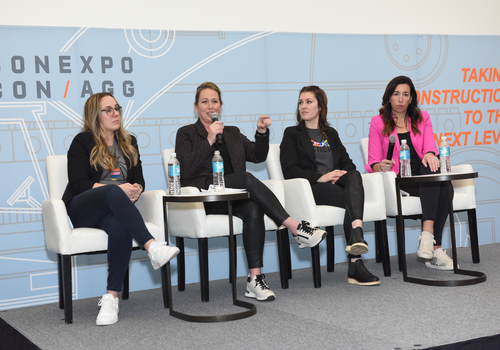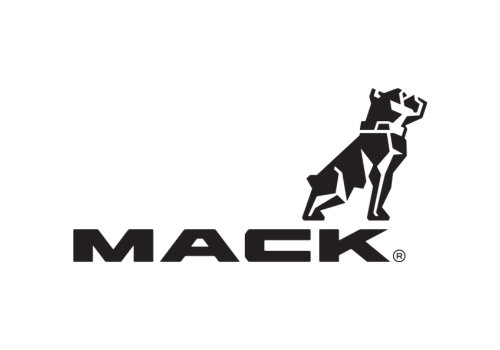The idea of integrating artificial intelligence (AI) into your construction marketing strategy might seem daunting. But those who ignore this emerging technology will be left behind, having missed one of the most significant opportunities in recent history. AI offers tools for better understanding and engaging with customers and automating many marketing processes. Contractors that learn how to embrace AI today can enhance their marketing efforts, leading to improved business outcomes tomorrow.
FOUNDATION AND FIRST STEPS
For construction companies looking to integrate AI into their marketing strategies, taking systematic and informed steps is crucial to ensuring success.
- Define Objectives
Begin by clearly defining what you hope to achieve by integrating AI into your marketing strategy. Are you looking to enhance customer engagement, improve lead generation, personalize marketing messages or optimize spending? Setting specific, measurable goals will help guide the choice of tools and strategies. - Assess Current Capabilities
Evaluate your existing marketing infrastructure and digital capabilities. Understand the data you currently collect (customer interactions, website traffic, etc.) and determine if it is sufficient and organized in a way that can be leveraged by AI. This might include assessing your team’s skills and the technological readiness of your existing tools. - Choose the Right AI Tools
Research and select AI tools that align with your specific marketing needs and objectives. This could include AI-powered CRM systems for better customer relationship management, AI-driven analytics tools for deeper insights into customer behavior or automated content management systems to enhance online engagement. It’s important to choose tools that integrate well with your existing systems to avoid silos and data integration issues. - Pilot Projects
Before rolling out AI across all marketing operations, start with pilot projects. These can serve as a test bed to see how AI can improve specific aspects of your marketing strategy. Choose projects that are limited in scope but significant enough to provide insights and measurable outcomes. This approach allows you to monitor performance, make adjustments and assess the impact without overwhelming your team or resources. - Training and Hiring
Prepare your team for a smooth transition to AI-enhanced marketing. This might involve training current staff on new tools and strategies or hiring new talent with expertise in AI and data analytics. Ensuring that your team is knowledgeable and comfortable with AI technologies is critical for successful implementation. - Data Governance
Establish a strong data governance framework to ensure data quality, security and compliance with relevant laws and regulations. This includes setting up protocols for data collection, storage, processing and sharing, as well as ensuring that data practices adhere to privacy laws. - Monitor and Optimize
Once AI tools are implemented, continuously monitor their performance against your set objectives. Use the insights gained to optimize strategies, refine AI functionalities and improve outcomes. AI systems often require adjustments and fine-tuning as they learn from real operational data. - Stakeholder Engagement
Engage with all stakeholders, including marketing teams, management and external partners, to ensure there is broad support and understanding of the AI initiatives. Communication should focus on how AI will benefit the company, improve efficiencies and contribute to achieving business goals.
FIVE WAYS TO USE AI
While the uses of AI are constantly evolving, here are five ways you can start to use AI today.
- Enhanced Customer Insights through Data Analysis
AI excels in analyzing large datasets to uncover patterns and insights that are not immediately obvious. By using AI-driven analytics tools, construction companies can gather and analyze customer data from various sources, including social media, website interactions and customer feedback. This analysis helps identify potential market segments and tailor marketing strategies accordingly. For example, by analyzing past bidding data and outcomes, AI can help identify which types of projects or client engagements have been most profitable and predict future opportunities. - Personalized Marketing Campaigns
AI technologies like machine learning algorithms can predict customer behavior based on past interactions and preferences. By integrating these technologies, contractors can create highly personalized marketing campaigns that speak directly to the needs and interests of individual clients or market segments. For instance, if AI identifies a trend that homeowners in a particular area prefer sustainable building materials, the contractor can tailor emails, ads and social media posts to emphasize their expertise in eco-friendly construction. - Automated Customer Service
Chatbots and virtual assistants powered by AI can provide immediate responses to customer inquiries on your website or social media platforms. These AI tools can handle a range of questions, from basic inquiries about your services to more complex questions regarding project timelines and processes. - Improving Project Visualization and Proposals
AI can also transform how construction firms present their projects to potential clients. Advanced AI software can generate realistic 3D models and simulations based on initial sketches and specifications. Also, AI can help create more accurate and competitive project proposals by analyzing many factors such as material costs, labor estimates and timelines based on historical data. - Monitoring Market and Competitor Activity
AI tools can continuously monitor market trends and competitor activity, providing real-time insights that can inform strategic marketing decisions. This can include tracking competitor expansions, marketing campaigns and even customer reviews and feedback across platforms.
PITFALLS TO AVOID
While AI offers numerous advantages for enhancing marketing efforts in the construction industry, it’s essential to be aware of potential pitfalls. Avoiding these common mistakes can help ensure that your AI integration is successful.
- Over-Automation
What Not to Do: Don't rely too heavily on automation for customer interactions. While AI can streamline communication, overly automated responses can feel impersonal and may fail to address specific customer concerns effectively.
Better Approach: Use AI to handle routine inquiries and data management but ensure that more complex customer issues are escalated to human representatives. This maintains an individualized touch and builds stronger client relationships. - Ignoring Data Privacy
What Not to Do: Don’t neglect data privacy laws and regulations when using AI to analyze customer data. Mismanagement of customer data can lead to legal issues and damage your company’s reputation.
Better Approach: Always ensure compliance with data protection regulations and privacy laws. Be transparent with your clients about how their data is being used and secure it against breaches. - Overdependence on AI Insights
What Not to Do: Don't make strategic decisions based solely on AI analytics without human oversight. AI models can sometimes draw incorrect conclusions from data anomalies or biased data sets.
Better Approach: Use AI as a tool to support decision-making but validate these insights with human expertise and industry knowledge. This helps mitigate the risk of errors and ensures more reliable outcomes. - Underestimating Training Needs
What Not to Do: Don’t assume that AI tools will work perfectly right out of the box without proper setup and training.
Better Approach: Invest in training your team on how to use AI tools effectively. Understanding the capabilities and limitations of AI technology will enable your staff to better integrate these tools into your marketing strategy. - Failing to Update AI Systems
What Not to Do: Don't set up AI systems and forget about them. AI tools evolve, and their maintenance is crucial for sustained performance.
Better Approach: Regularly update AI models and algorithms to adapt to new data and changing market conditions. This ensures that your marketing strategies remain effective and aligned with current trends.
Photo credit: NONGASIMO/BIGSTOCKPHOTO.COM











